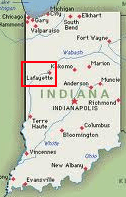![]() The capital city of Iowa will soon get citywide access to gigabit service from a new competitor when MetroNet fires up its fiber to the home network beginning in the spring of 2022.
The capital city of Iowa will soon get citywide access to gigabit service from a new competitor when MetroNet fires up its fiber to the home network beginning in the spring of 2022.
MetroNet, based in Indiana, has developed a lucrative business competing with some of America’s lesser known telecom companies, which have generally offered poorer service and slower speeds. When MetroNet cuts the ribbon on its gigabit fiber network, it will compete with usage-capped cable operator Mediacom, which Consumer Reports has bottom rated for at least a decade, and underfunded phone company CenturyLink, which has struggled to keep up with cable operator upgrades.
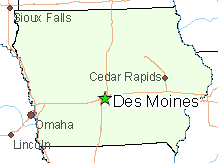
Des Moines, Iowa
According to the Des Moines Register, the fiber overbuilder will invest $70 million in its Des Moines network, and will be the third local competitor for internet, phone, and video service. The company traditionally undercuts competitors on regular pricing and at least matches their introductory pricing. In Des Moines, Mediacom offers new customers gigabit speed for $79 per month, which almost doubles to $139.99 when the promotion ends. CenturyLink’s limited fiber network starts at $65 a month, but also rises significantly after the promotional pricing ends. MetroNet will charge $60 a month for gigabit speed with a $100 debit card rebate, with prices increasing after the sixth month to $69.95 for the next 12 months. After the 18th month, regular pricing ($89.95) will apply.. MetroNet does not impose any data caps or usage based pricing.
MetroNet already offers service in Davenport, Ames, and Bettendorf, and has similar networks under construction in Ankeny, Urbandale, Gilbert, Grimes, Johnston, Clive, Le Claire, Nevada and Mason City — all in Iowa.
Google Fiber also has a nearby presence in West Des Moines. The city is constructing a fiber network that Google will license to provide its fiber internet service to residents in that area.
MetroNet received significant assistance from “red-tape-cutting” city officials, and the network will use existing rights-of-ways, with cables placed on poles and underground. MetroNet expects construction to take up to three years to complete, and residents can follow the company’s progress on a special website.
KCCI in Des Moines reports on MetroNet’s entry into Iowa’s largest city. (1:59)


 Subscribe
Subscribe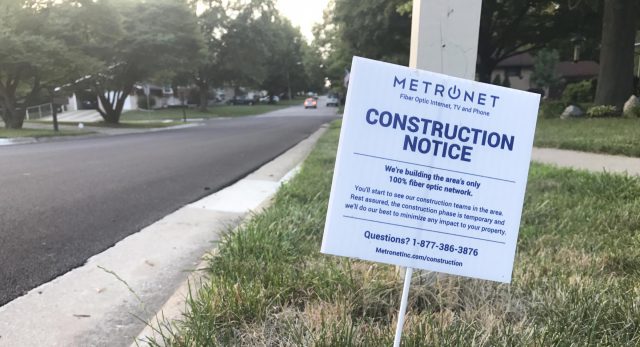 Exurban communities in northern Illinois bypassed for upgrades from second-rate cable companies and considered too-small-for-fiber by AT&T are clamoring for a third option that will deliver fiber optic broadband.
Exurban communities in northern Illinois bypassed for upgrades from second-rate cable companies and considered too-small-for-fiber by AT&T are clamoring for a third option that will deliver fiber optic broadband.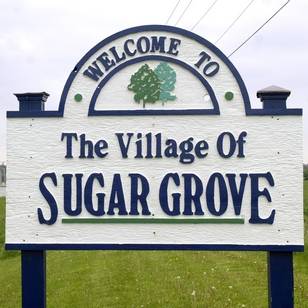 Sugar Grove is just one of several exploding exurban communities in the far western suburbs of Chicago. As residents migrate further away from the city center, they expect services to migrate with them. But when essential utilities are in the hands of private companies, smaller towns and villages are often frustrated to hear there is not enough Return On Investment to provide 21st century quality service.
Sugar Grove is just one of several exploding exurban communities in the far western suburbs of Chicago. As residents migrate further away from the city center, they expect services to migrate with them. But when essential utilities are in the hands of private companies, smaller towns and villages are often frustrated to hear there is not enough Return On Investment to provide 21st century quality service.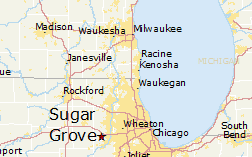 “The MetroZone opportunity is a milestone in that we are able to track those who are interested in us coming to the village of Sugar Grove,” said Kathy Scheller, business development manager for MetroNet. “Our goal is to have 25 percent of the village pre-signed by Feb. 28.”
“The MetroZone opportunity is a milestone in that we are able to track those who are interested in us coming to the village of Sugar Grove,” said Kathy Scheller, business development manager for MetroNet. “Our goal is to have 25 percent of the village pre-signed by Feb. 28.”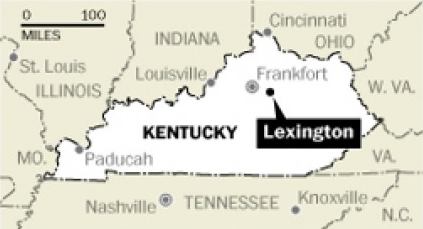 Headquartered in Evansville, Ind., MetroNet provides internet, phone and television service across a 100% fiber optic network in 35 communities in the midwest — mostly in Indiana and the western suburbs of Chicago. The company started operations in 2005, wiring the community of Greencastle, Ind. Since then, it has grown with the financial support of billionaire investors including Microsoft founder Bill Gates and Nike’s Phil Knight. Oak Hill Equity Partners, a private equity firm, has a financial interest in MetroNet, along with investments in WOW!, Atlantic Broadband, Wave Broadband, and Cincinnati Bell.
Headquartered in Evansville, Ind., MetroNet provides internet, phone and television service across a 100% fiber optic network in 35 communities in the midwest — mostly in Indiana and the western suburbs of Chicago. The company started operations in 2005, wiring the community of Greencastle, Ind. Since then, it has grown with the financial support of billionaire investors including Microsoft founder Bill Gates and Nike’s Phil Knight. Oak Hill Equity Partners, a private equity firm, has a financial interest in MetroNet, along with investments in WOW!, Atlantic Broadband, Wave Broadband, and Cincinnati Bell.